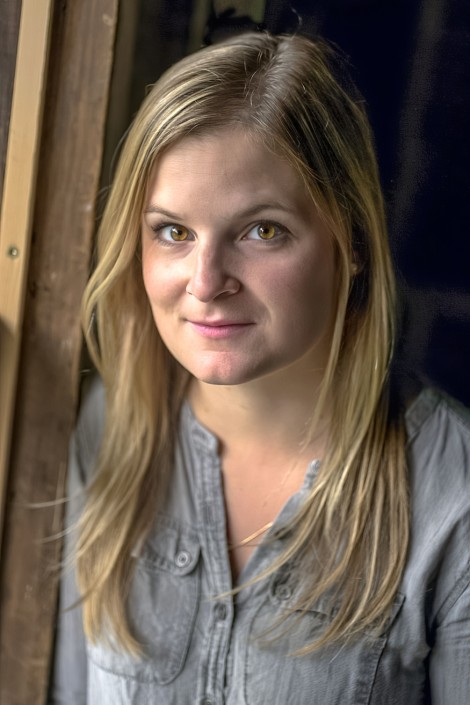
Essays and Ideology
OWU Professor Amy Butcher Publishes Works in Harper’s Magazine, Washington Post
Despite its warmer-than-usual temperatures, March feels a little like December to Ohio Wesleyan University’s Amy Butcher.
On March 8, two of the creative writing professor’s essays were published in leading national media outlets: Harper’s Magazine and The Washington Post.
“It’s a little bit like a writer’s Christmas,” Butcher says of the dual distributions.
Harper’s published her essay “Bare Necessities: A visit to the edge of the Arctic Ocean” in its “Postcard” section. The essay is a teaser for Butcher’s forthcoming book, which she still is writing.
“I’ve begun working on a book about Alaska and solitary travel and contemporary feminism,” Butcher says, “essentially, a narrative about what it is to grow up in a place where remarkably few women leave and fewer still understand the desire to leave.
“I’ve spent every summer for the past six in Sitka, Alaska, and often use Sitka as a place to springboard around the rest of Alaska,” she continues. “In addition to doing the 16-hour James W. Dalton Highway of ‘Ice Road Truckers’ fame – a notoriously deadly highway, even in summer – I spent two weeks in Prudhoe Bay, the most isolated community in America, living among oil field workers, some of the hardest working men and women I’ve ever met.
“I also spent a portion of last winter on a World War II-era tugboat, which was heated only by wood smoke and surrounded by bald eagles, seals, sea lions, and even whales,” she says. “I suppose in many ways the book is about pressing on the ideology of suburbia and how that often shapes women’s lives by default.”
The Washington Post published Butcher’s essay “What a third-grade geography lesson taught me about a woman’s place in the world” as a March 8 “Solo-ish” perspective piece – a perfect post for International Women’s Day.
In that essay, Butcher writes: “Nearly three decades ago, on a clear October morning, my third-grade teacher asks us to line up so that we might make the world, our bodies representing countries and bodies of water.”
While the boys were designated as countries, the girls received less significant assignments – a fact not lost on the third-grade Butcher.
“Three decades removed,” Butcher writes, “my mother still tells this story when someone asks what I was like as a child.
“ ‘She came home, threw her backpack down, and began screaming that she would be a country,’ my mother says, laughing. My male friends roll their eyes. My female friends shake their heads. ...
“Everyone has a moment that changes them forever. Mine exists in that classroom, in the knowledge instilled that day not of geography but of how hard the world will work to make a woman think she needs a man to be of value.”
As of the woman Butcher has become, she smiles and says: “I suppose I’m becoming quite the feminist.”
An assistant professor of English, Butcher, M.F.A., joined the Ohio Wesleyan faculty in 2014. Her first book is “Visiting Hours: A Memoir of Friendship and Murder.”
